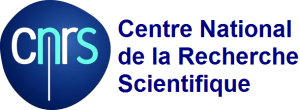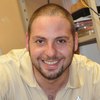Centre National de la Recherche Scientifique
PI: Sebastien Tanzilli

The laboratory of condensed matter physics (LPMC) is a joint research unit (UMR 7336) headed by the University Nice Sophia Antipolis and the Centre National de la Recherche Scientifique. It is associated with two CNRS institutes, namely the INstitute of Physics (main association) and the INstitute of Engineering and System Sciences (secondary association).
Ongoing research activities at LPMC can be outlined along thematics such as Waves in Complex Medias, Fiber Optics, Nonlinear Photonics and Quantum Information/Optics, in which more than 20 research projects are conducted. These thematics gather more than 20 researchers (either from the University or from CNRS) and has the possibility to be supplied by technical platforms: “Specialty optical fibres manufacture” and “Integrated Photonics on Lithium Niobate”. Joint service commitments, gathering both administration and technical facilities, help the researchers developing their research programs in a more efficient and easier way.
The LPMC is highly involved in teaching activities whatever the degree (Licence and Master). Notably, it plays a leading role in the two Masters of Physics proposed at the University Nice Sophia Antipolis regarding both research and teaching aspects. It also offers to undergraduates the possibility to experience a first insight in a research laboratory.

Ongoing research activities of the group
Thanks to its experience in guided-wave quantum communication, MOSAIQ is seeking to play an even more important role in quantum information thanks to the recent setting-up of cold atom based experiments. Gathering at the same place complementary experimental technics and skills offers unprecedented possibilities to couple the fundamental quantum resources (qubits, pairs of entangled qubits, etc.) in more complex, however very ambitious, experiments.

More specifically, on one hand we are involved in the generation and manipulation of non-classical states of light (entanglement, Fock states, etc.) thanks to the development of new generation optical chips, integrating several optical functions on a single lithium niobate substrates (photon pair generator, directional couplers, wavelength (de)multiplexers, etc.). On the other hand, we are currently studying quantum storage experiments based on cold atomic samples using two different species, i.e., rubidium and cesium, respectively, finding applications in both applied (quantum networking and processing) and fundamental (entanglement of two remote quantum memories) physics.
With all these experimental skills and techniques, our team is therefore covering research topics from the foundations of quantum optics to applied aspects of quantum information science.
Link to the group page: http://lpmc.unice.fr/spip.php?article852